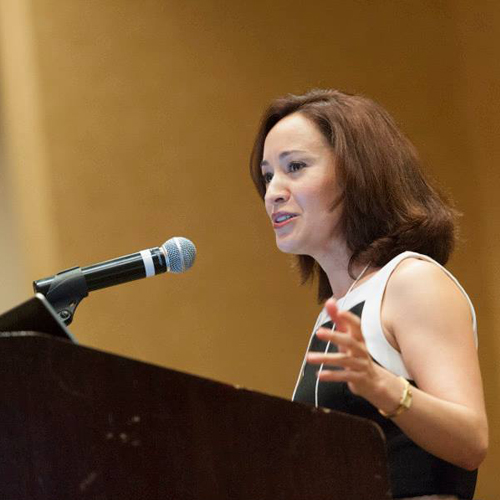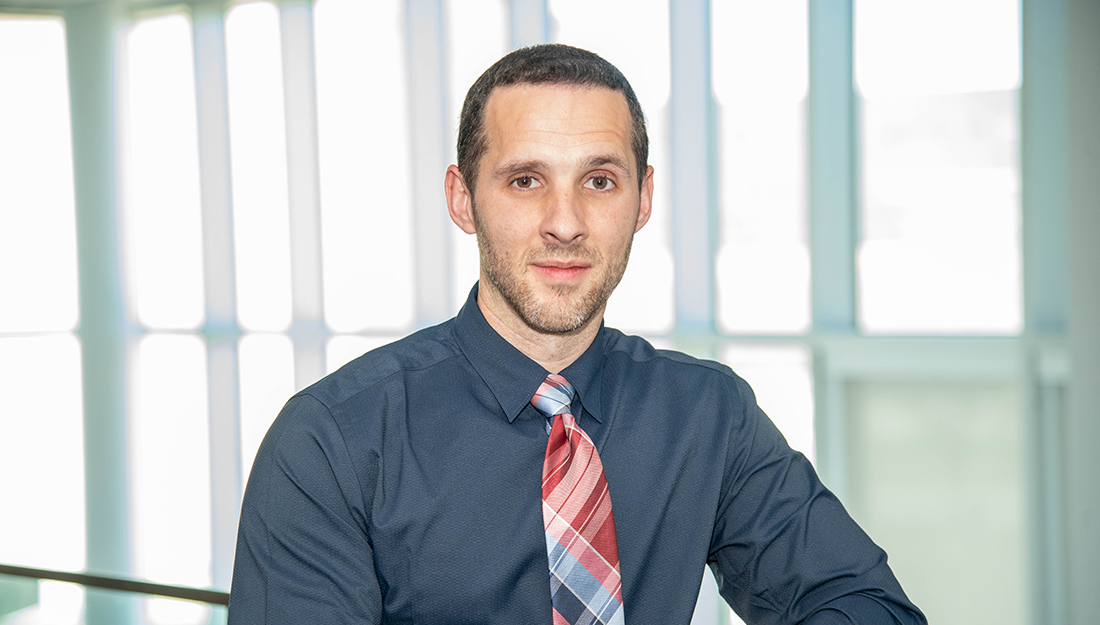Aggie takes rural health care reform to the nation’s capital


Since most Texas counties are rural, many Aggies have experienced firsthand the health care obstacles facing residents of rural communities. Often, students seek an education in public health so that they might one day have an impact on the quality of life and health care available to residents in the rural places they call home.
As a native of south Texas, Amy Elizondo, MPH, a graduate of the Texas A&M School of Public Health, has always had a passion for rural health care and sought to find ways of impacting rural and underserved communities in a positive way. Over the past 17 years, she has worked tirelessly with numerous government and nonprofit organizations to increase health care training, raise awareness of rural health issues and improve access to care for individuals living in rural America.
“My education at the Texas A&M School of Public Health provided me with a solid foundation in public health and health services practices, allowing me to set my sights on a national scope of work that I never could have imagined,” Elizondo said. “I was fortunate enough to be guided by professors who were instrumental in steering me toward the possibility of working on a national level, and the encouragement continues even today.”
Following graduation in 2002, Elizondo went to Washington, D.C., to complete an internship with the Health Resources and Services Administration’s Federal Office of Rural Health Policy. She managed to pack all of her belongings into her 1998 Ford Escort for the long journey to the nation’s capital.
“Having never been to Washington, D.C., this trip was my introduction into what has been one of the biggest adventures of my life,” Elizondo said.
Soon after completing her internship, Elizondo took a position serving as the primary legislative analyst for rural health care and post-acute care issues at the Centers for Medicare and Medicaid Services’ (CMS) Office of Legislation. She would later serve as a special assistant to the director of the Medicare outreach team, working with stakeholder groups during the implementation of the Medicare prescription drug benefit.
During her time at the CMS, Elizondo had the opportunity to work on the Medicare Modernization Act of 2003, a historic time in health care history. The experience also afforded her a front-row seat into how policy programs come to fruition and how they impact those working on the frontlines of health care.

“My experiences at CMS allowed me to continue to focus on rural health care while providing a bird’s-eye view of the regulatory and legislative world of health policy,” Elizondo said.
In 2006, she joined the National Rural Health Association (NRHA), a nonprofit membership organization with a mission to provide leadership on rural health issues through advocacy, communications, education and research. As the vice president of program services for the NRHA, Elizondo oversees numerous grant programs and initiatives. One such program is the Border Health Initiative, which addresses policy issues impacting rural areas along the border and highlights best practices in those communities.
“An important part of the Border Health Initiative has been the development of a National Rural Community Health Worker (CHW) Training Network, which has helped bring education and networking opportunities for CHWs practicing in rural areas of the country.”
Another initiative Elizondo helps implement is the Rural Training Track (RTT) Technical Assistance Demonstration Program as part of a national strategy in training physicians for rural practice. Funded by the Federal Office of Rural Health Policy, the program assists RTTs whereby medical residents complete training the first year in an urban setting and in rural settings the next two years with hopes they will be encouraged to practice primary care in rural areas.
“It has been an honor to work with rural and underserved areas across the country through my work at NRHA,” Elizondo said. “Washington, D.C., may currently be home, but it is through this work that I hope to make a positive impact for places such as my forever home in Mercedes, Texas, where my family still resides. I will forever be grateful for both the education and encouragement I received from the faculty at the School of Public Health to pursue this opportunity.”
Media contact: media@tamu.edu


